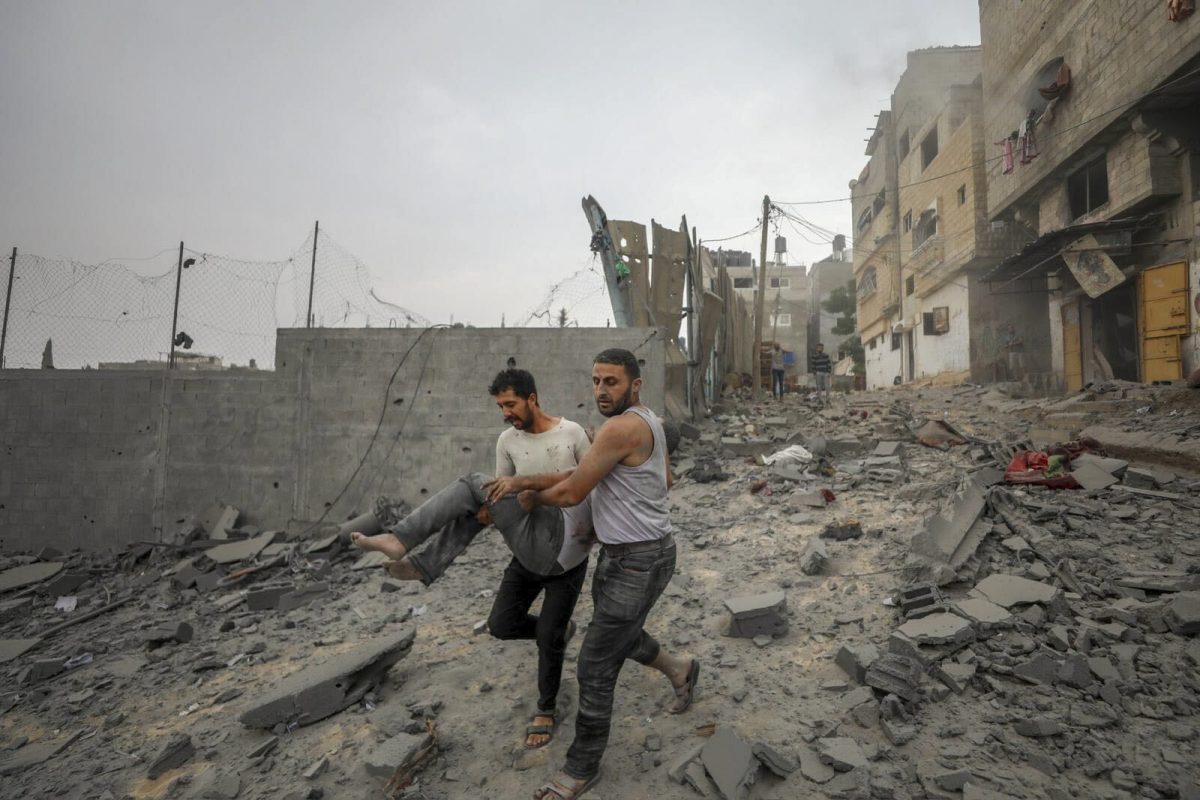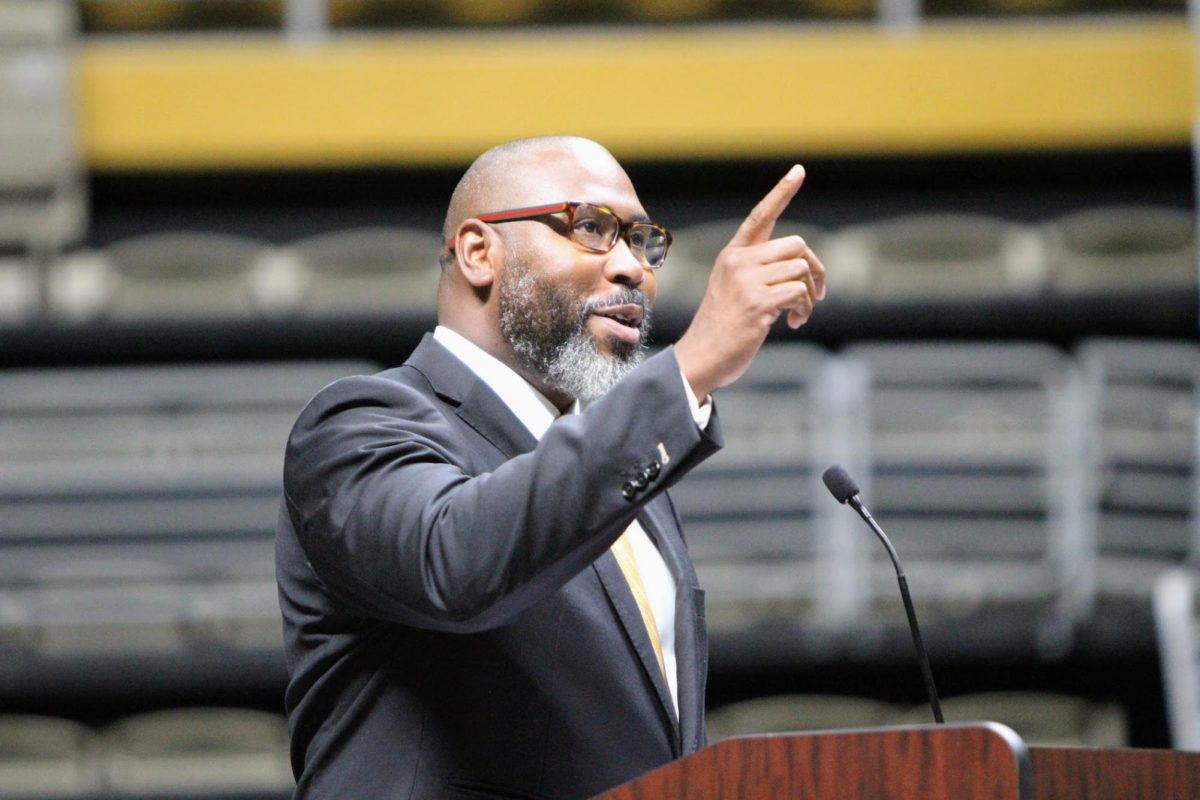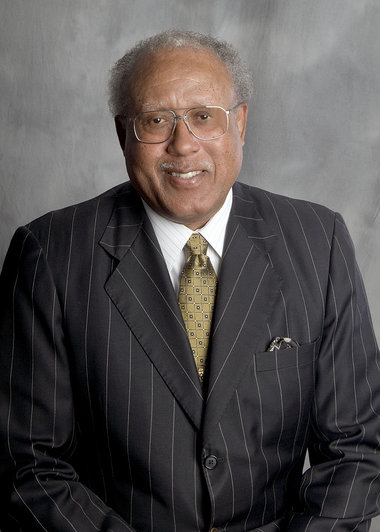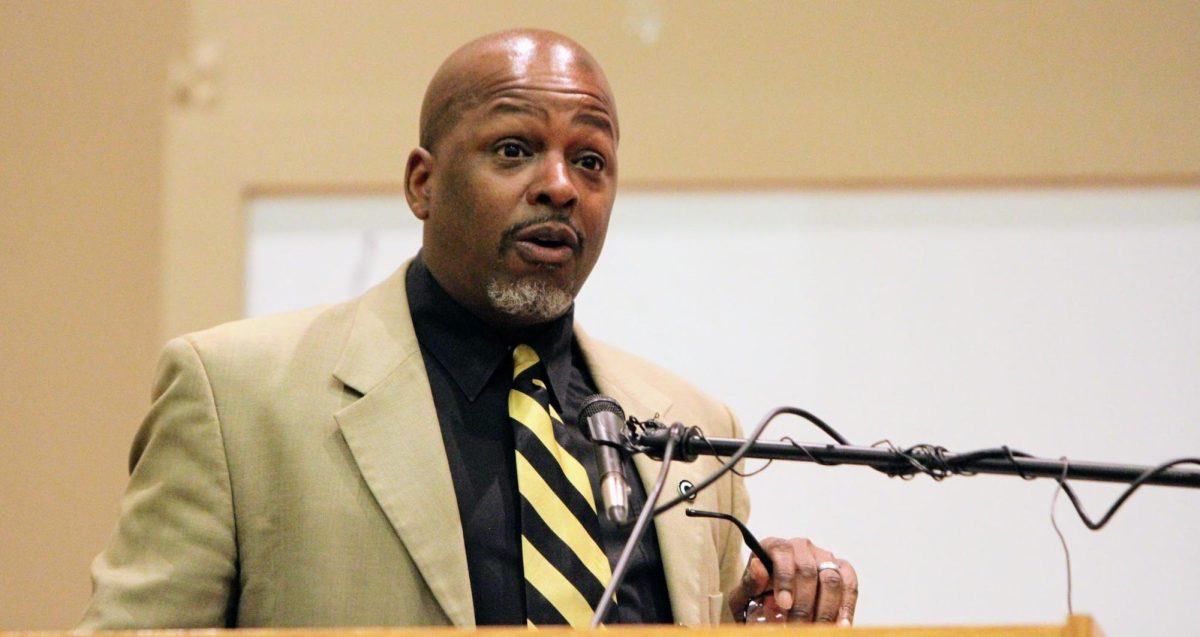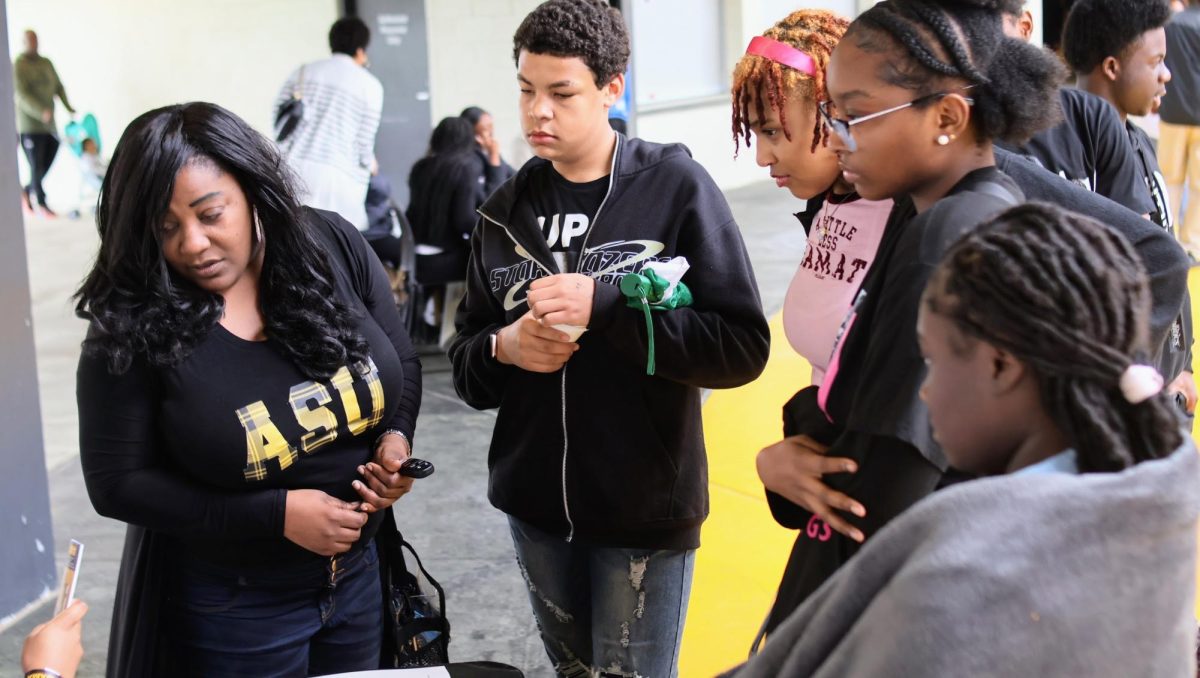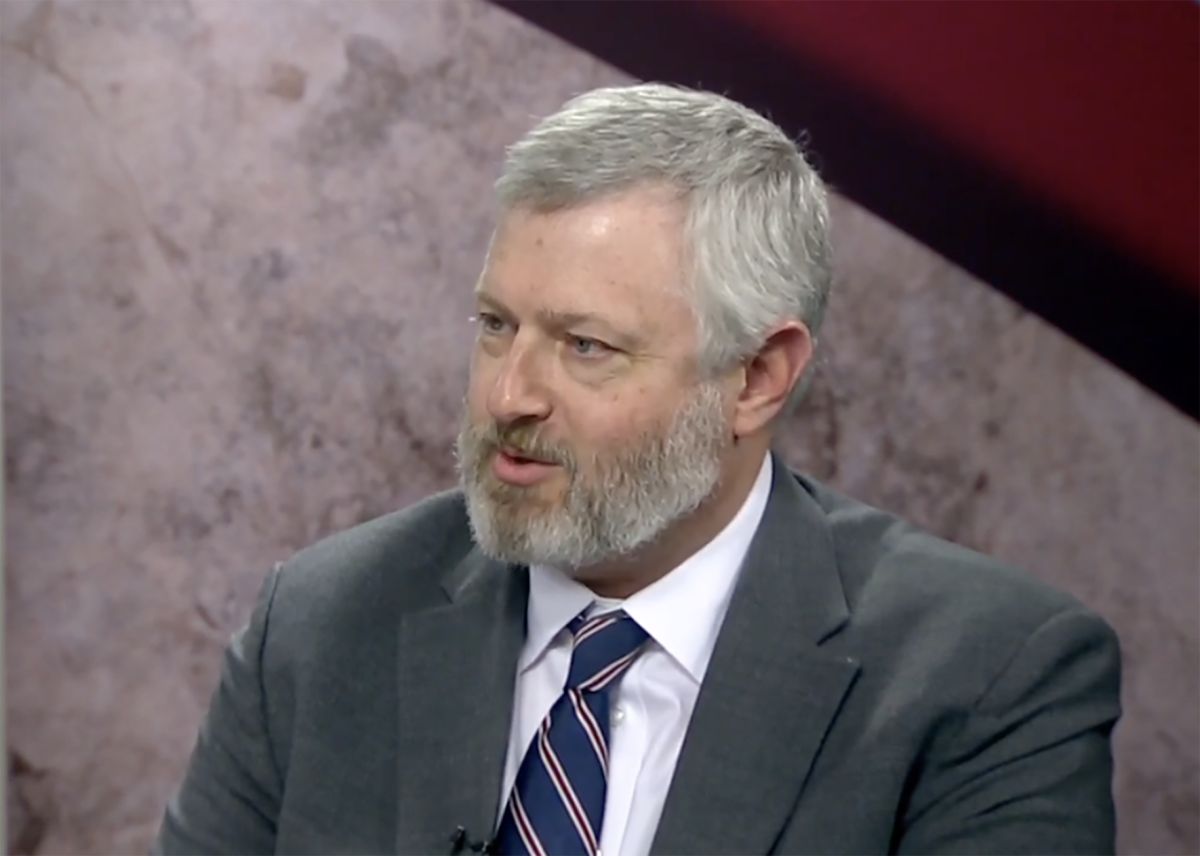The terrorist group Hamas, or the Islamic Resistance Movement, rocked the world on Oct. 7, as they launched a surprise attack on Israel during the Jewish holiday of Simchat Torah or Shabbat, a day after the 50-year anniversary of when the Yom-Kippur War began.
Hamas emerged in 1987 during the first Palestinian uprising, or intifada, as an outgrowth of the Muslim Brotherhood’s Palestinian branch. The group is committed to armed resistance against Israel and the creation of an Islamic Palestinian state in Israel’s place.
The following day on Oct. 8, Israel declared a state of war under article Article 40A, the first time it has been invoked since the Yom Kippur War approximately 50 years prior.
“It’s an unfortunate problem,” said assistant professor of history Maurice Robinson. “It’s a terrible situation. Right now, Israel is doing what it thinks it needs to do to contain the problem and get rid of an organization called Hamas which was founded as a way to get rid of Israel in a way. This is not the first time that Hamas and Israel have gone back and forth in these types of unfortunate situations.”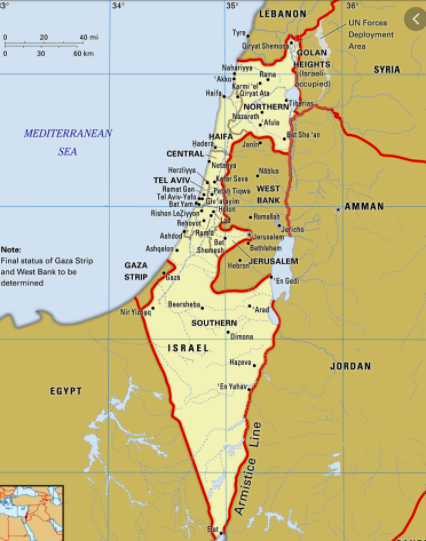
He continued.
“At the moment, the Palestinian people are in a political problem because some Palestinians are with a group called Fatah on the West Bank, and some Palestinians are in Gaza City, which is right now led by Hamas, who are a political organization, but also a socio-Islamic group that wants to lead Palestinians in a different way.”
In order to more accurately understand the background of the conflict, most historians start with the Jewish diaspora.
According to the New York Times, the Jewish diaspora is the biblical exile of Jews out of the Land of Israel, which is their homeland. Due to this exile, Jewish communities established themselves in various parts of the globe ranging from Africa, Asia, and Europe.
However, in 1917 during World War I, British Foreign Secretary Arthur Balfour revealed that he had plans to create a home for Jewish people in Palestine, where their Holy Land was initially located. In 1918 British forces joined with Jewish forces to conquer the land from Palestine. From this campaign the state of Israel was established. Israel did not officially declare independence from the United Kingdom until 1948, over 30 years later.
Tensions between Israel and Palestine only got worse when the two fought in the 1967, during the Six-Day War. Israel won that war and placed Palestine under Israeli occupation. In this war, Israel won against a coalition of Arab states including Egypt, Syria, and Jordan.
The Arab states collectively suffered casualties of over 20,000, while Israel suffered less than 1,000.
In 1987, Hamas was established. Before then, the only Palestinian political party was Fatah, founded in 1965. Fatah launched many attacks against Israel in protest to Israeli occupation of Palestinian land, so much so that Fatah was labeled a terrorist organization under Israeli law and was considered terrorist organization by the United States State Department and U.S. Congress. In 1988, Fatah renounced terrorism, and began seeking more peaceful options to their tension with Israel.
This felt like a betrayal to Hamas, and in 2007 a civil war between Hamas and Fatah erupted. After the two parties failed to make a deal to share their governmental power, the civil war concluded with Hamas winning complete control over the Gaza Strip. Their victory surprised even Israel. After their defeat, Fatah retained control of the West Bank, but they have occasionally squabbled with Hamas.
After Hamas won the civil war, Israel and Egypt imposed a blockade on goods coming in and out of Gaza. This was to punish Hamas but also to ensure they couldn’t smuggle weapons into Gaza.
Tensions built with no signs of stopping until the attack on Oct. 7, which resulted in over 1,400 Israeli casualties. Now, Israel and Hamas are at war and the death and devastation is only growing as neither side is backing down. Since the conflict began, it has received global coverage, giving many countries a front row seat to the bombings and beheadings of children. Recently, a hospital in Gaza was bombed, with a death toll estimated around 500.
“I think that’s terrible,” senior Ma’kiya Selma said. “It’s probably one of the worst places that could be bombed. If you think about it, there’s people in there who are sick and who are basically helpless. To go and destroy it and bomb it, that just doesn’t make it any better, and it shows the lack of care humans, in general, can have towards one another.”
Israel has been America’s most reliable partner in the Middle East since 1949, so it is no surprise that the U.S. has shown support for the country.
President Joseph Biden’s first trip to Israel during his presidency was from July 13-15, 2022. His trips have drawn criticism globally for what is being viewed as supporting a genocide.
“We’ve had a long standing relationship with Israel,” said Carlos Morrison, Ph.D., a professor in the department of communications. “That’s the position that he should take given his office and given the U.S.’s relationship with Israel. They have been a friend of this country and we are showing our support.”
He continued.
“Many have in the past criticized the U.S. for getting involved in international conflicts that some say have nothing to do with us, but to a certain degree it has everything to do with us because we have a huge Israeli population in this country. By the same token we have a huge group of Palestinian Americans in this country, so it’s a tough one. He’s going to get criticized either way. If he doesn’t get the U.S. involved there will be criticism and if the U.S. does not become involved, militarily or otherwise, it is going to invite criticism, so it comes with what it means to be president. You get the good and the bad.”
It is reported that Biden will ask Congress to support Israel and Ukraine to the tune of $100 billion.
Freshman Trinity Barron feels that the U.S., which is already trillions of dollars in debt, should not appropriate the money.
“If we got $100 billion to support a war, then why can’t you pay my student loans? Give my mama some money,” Barron said. “There is no reason that the U.S. should be sending billions of dollars to a country that is trying to colonize another country essentially. Because it’s hypocritical. How are you going to support Ukraine but also support Israel? The two situations are very similar, but the one difference is that what Israel is doing lines up with how America essentially was colonized. Israel is taking over Palestine in their own manifest destiny. I don’t think the U.S. should give the money, but they’re probably going to.”
This is a long standing issue, and no solution is in sight, but according to Morrison, only communication between all sides will lead to anything substantial.
“Communication is core to negotiations,” Morrison said. “What could’ve been done to iron out these centuries old differences? It requires work. Communication requires a lot of work. The end result of communication is action, and here is one of violence.”
He continued.
“So what could’ve been done from a communication perspective to avoid the violence? What kind of ‘roll up your sleeves’ discussions could we have had on the front end that maybe could have avoided some of the violence and the drum beats of war on the back end? I’m all for the hard talks ahead of time and before we move in the direction of war. Even if we had negotiated, could we still have ended up here? That’s possible, but I think the country should do all that it can with its various leaders to really sit down at the table and really engage in the hard discussions. I wish that we would have more of that, so that maybe, we could have a different outcome.”
ISRAELI v. PALESTINE
Students and faculty respond to Hamas’ surprise terrorist attack on Israel
October 14, 2023
Palestinians evacuate wounded in Israeli aerial bombing on Jabaliya, near Gaza City, Wednesday, Oct.11, 2023 (AP Photo/Mohammad Al Masri)
Story continues below advertisement







